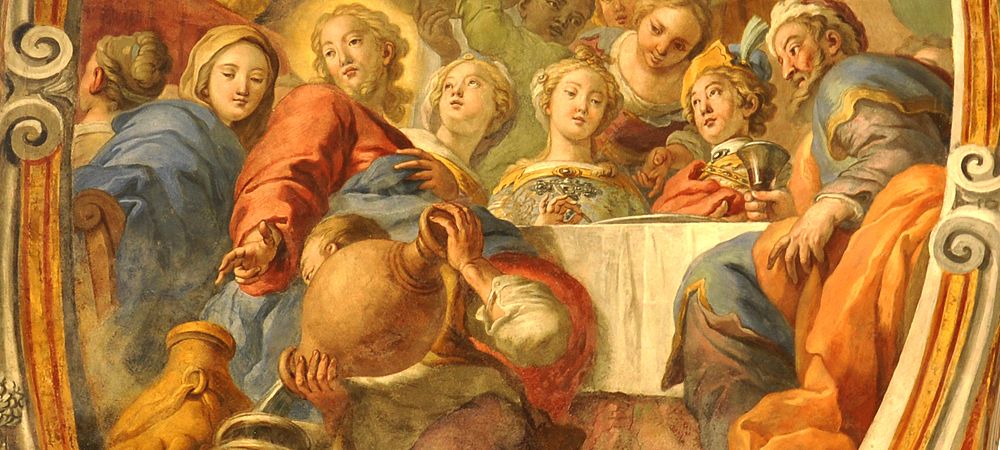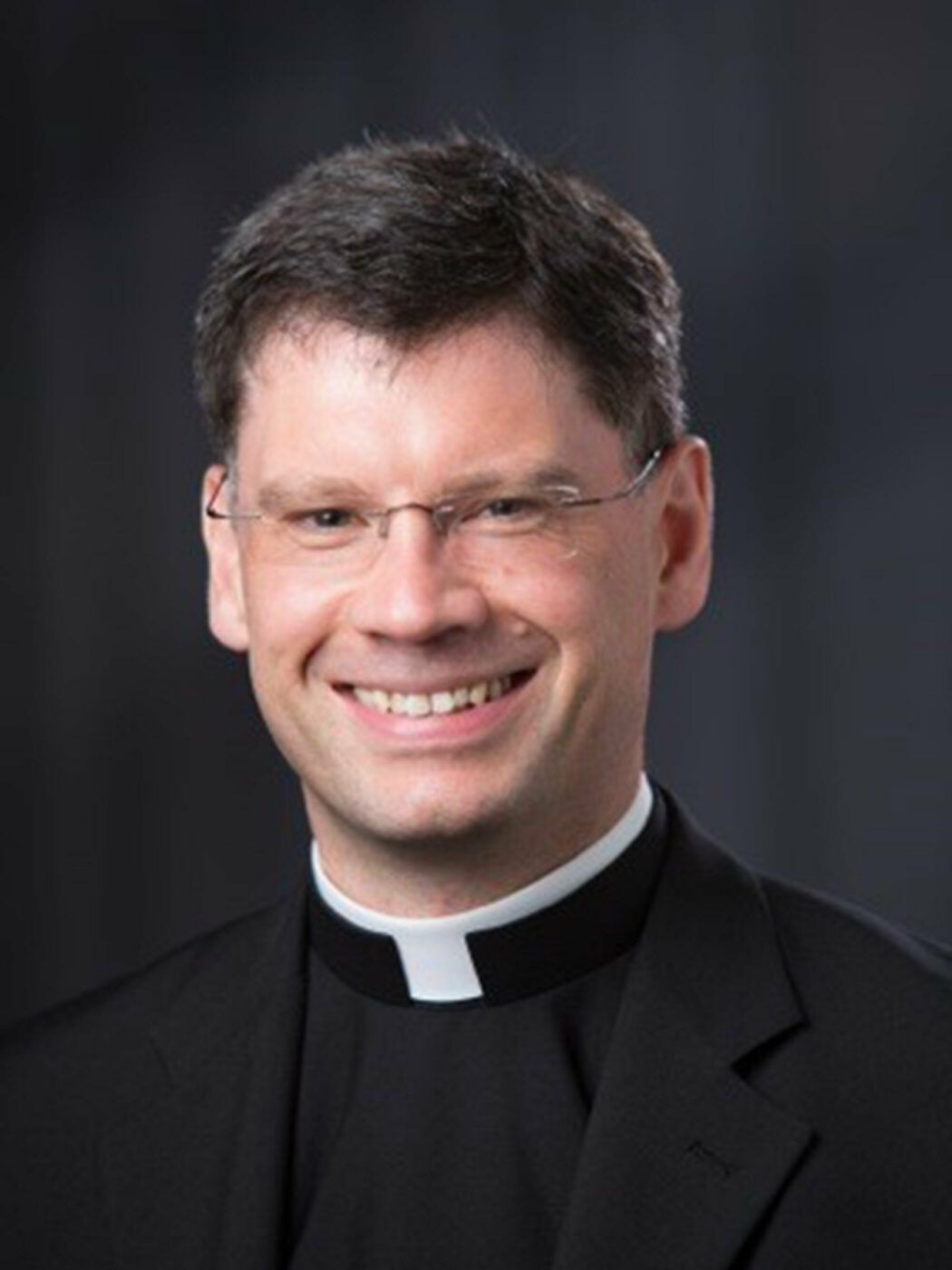Christmas was special growing up in rural Ireland. Creation seemed to share the longing and joy of the Incarnation. Folklore had it that at midnight on Christmas Eve, when the Word leapt from his royal throne to earth (Wis 18:15), the animals in the outhouses fell to their knees, the bees in the beehives buzzed Psalm 100, and the water in the wells turned to wine. We were never encouraged to go and fact-check! Nor did we want to: it was too dark and too cold.
In truth, the Lord uses his creation to draw close to us and give himself to us. At Cana, creation recognizes in Jesus its Creator and Lord, the One who would restore it. No mere mortal could turn water into wine. Rather, the “water saw its God and blushed” (John Dryden).
Pious folklore reflects something of the truth because, at Cana, the Lord did once change water into wine. Much more wondrously, however, at the Last Supper, he changed wine into Blood. He still does, in every Mass, and will do so until the end of time. Daily, in the Eucharistic Sacrifice, wine is transformed into his Blood, as he pours himself out in a total gift of self. Cana is an epiphany of who Jesus is and of the unsurpassable newness of the covenant in his Blood. He is the Divine Bridegroom who gives everything. Cana reminds us that the Holy Eucharist is truly “the Sacrament of the Bridegroom and the Bride” (St. John Paul II).
Beside Jesus, at Cana, is Mary his mother. Even as the unnamed married couple of Cana bask in the new wine of the Divine Bridegroom, his bride, the Church, is embodied in the person of Mary. She is presented here as “the Woman” prophesied in Genesis (3:15), the New Eve whose “yes” would undo the knot of sin. Indeed, it’s at Mary’s word that all this happens, both at the Annunciation and here at Cana.
Mary’s intervention changes things! She is the one to whom Jesus listens especially and unfailingly. At Cana, her prayer is “the door by which the Savior enters on his public ministry” (Edward Leen). As Mother of the One who told us to honor our parents, her prayer has a special claim. Yet she doesn't tell Jesus what to do. Having done her bit, she places the situation before him, leaving the rest to him. This is a model of prayer: giving our needs to the Lord and confidently fixing our gaze—with Mary—on his face, willing to do whatever he tells us.

At Mary’s word the public ministry of Jesus begins. At her intercession, the direction of creation changes, the work of redemption is hastened, the “hour of Jesus” is advanced, and our joy is restored. It even seems like Mary was the reason for the wedding invitation: “the mother of Jesus was there . . .” Only then does the gospel add, “and Jesus, too, and his disciples, were invited . . .” It is not Jesus but she who speaks to the servants. She is presented here as the one who notices, who speaks up, who acts. Up to and including this point, Jesus defers to her as he had submitted to her and St. Joseph since he was twelve years old. But now, with the hastening of his “hour” at Mary’s request, his public ministry begins.
What’s so consoling for us about Cana is that it’s not just a great spiritual need that concerns Our Lady but a small temporal need. She did not want the newly married couple to be embarrassed on their wedding day by running out of wine. How tender, how humble, how discreet, how thoughtful!
That’s how she is with us too—if we let her. She takes care of matters great and small. She never hesitates to request and secure any grace compatible with the will of God. Her intercession is “all-powerful” with her Son (St. John Henry Newman). This fills us with joy and frees us from much distress and turmoil. Through Mary, joy has come into the world and into our lives, for Christ has come at Mary’s word and Christ acts at Mary’s suggestion. He gives the new wine of grace, wine which biblically signifies joy.
Without Mary’s word, without her “yes,” the Incarnation would not have happened; the public ministry of the Lord would not have begun as it did; the hour of Jesus would not have been hastened as it was. We would have remained a joyless people. Without Mary, joy would not have entered the world. Instead, we would have lived in a world like the early Narnia where it was "always winter but never Christmas.” She is the Cause of our Joy.
In this Holy Year, open the door to Mary as she did to God. Open the door to Christ and so to joy. O Mother of Jesus, Cause of our Joy, speak a word to Jesus for us, for we have no wine. Restore our lost joy!


